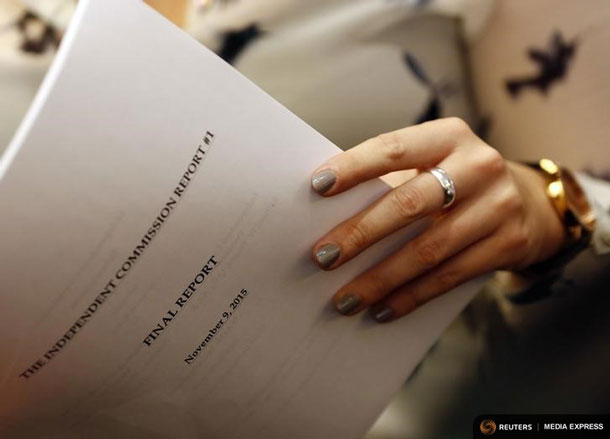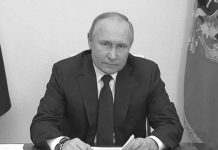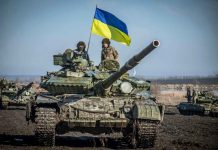

GENEVA (Reuters) – Russia could be banned from international athletics, including the 2016 Olympic Games, after an anti-doping commission report on Monday alleged widespread corruption and collusion that added up to a state-sponsored drugs culture in a sporting superpower.
The commission, set up by the World Anti-Doping Agency (WADA), found a “deeply rooted culture of cheating” in Russian athletics, which it said Russian state security services colluded with, and also identified what it called systemic failures in the global governing body, the International Association of Athletics Federations (IAAF).
At one point, the commission said, the WADA-accredited anti-doping laboratory in Moscow destroyed 1,417 samples shortly before an inspection. “This was done on a Saturday morning immediately prior to the arrival in Moscow of a WADA audit team,” the report said.
Russian Sports Minister Vitaly Mutko said there was no evidence for the accusations against the Russian Athletics Federation, and that the samples had been destroyed at WADA’s request.
IAAF President Sebastian Coe said he was alarmed and surprised by the scale of the revelations, which come days after the IAAF’s long-time president, Lamine Diack, was accused by the IAAF of concealing a Russian athlete’s doping violations.
“These are dark days,” said Coe, Diack’s successor. He gave Russia until the end of the week to respond to the accusations, and said the IAAF Council would then discuss possible sanctions.
Dick Pound, the head of the commission that produced the report and a former president of WADA, referred to a corruption scandal now shaking football’s governing body, FIFA.
“I hope all sports will look at their governance and their anti-doping systems because their existence may be at risk,” he told a news conference. “Public opinion is going to move towards the view that all sport is corrupt.”
The report said the presence of Russian security services in the Moscow anti-doping laboratory “actively imposed an atmosphere of intimidation on laboratory process and staff”.
GLOBAL INVESTIGATION
The international police body Interpol said it would coordinate a global investigation into suspected corruption and doping in athletics.
Some believe the scandal could have bigger ramifications than the graft affair at FIFA, where president Sepp Blatter has been suspended, 14 officials and marketing executives have been indicted, and Switzerland is investigating the awarding of two World Cups: to Russia in 2018 and Qatar in 2022.
The commission said in its report that the London Olympics in 2012 had in effect been “sabotaged” by the widespread inaction of national anti-doping authorities and the sport’s governing body.
“For 2016, our recommendation is that the Russian Federation be suspended,” Pound said. “In fact, one of our hopes is that they will volunteer that, so that they can take the remedial work in time to make sure that Russian athletes can compete under a new framework.”
Russia finished second behind the United States in athletics at the 2012 Olympics, with 17 medals, eight of them gold, and has long been one of the chief players in track and field.
In one sense at least, the scandal could prove more compromising than the FIFA affair. There has never been any suggestion that FIFA corruption has affected results on the pitch, at the World Cup, for example.
“It’s worse than we thought, It has the effect of factually affecting the results on the field of play and athletes, both in Russia and abroad, are suffering as a result,” Pound said. “It may be a residue of the old Soviet system … they must stop it and make a new start.”
“I hope they’ll say this is an opportunity to get rid of the old system, get rid of the old coaches, and change their ways. If they (Russia) do the surgery, and do the therapy, I hope they can get there (the Rio Olympics) and compete.”
A decision to suspend Russia could be taken only by the IAAF.
INFLUX OF MONEY
The acting president of the Russian Athletics Federation (ARAF), Vadim Zelichenok, told Reuters by telephone: “It is only a recommendation … But I cannot say if the IAAF will follow this.”
Corruption has infected many sports. The International Olympic Committee was hit by a scandal 15 years ago, while cricket and cycling have also been tainted.
The reach of graft in global sport might in part be explained by a huge influx of sponsorship in recent decades into bodies lacking effective governance and supervisory procedures. That financial backing could now be put at risk.
“I think the credibility of sport has taken some fairly serious body blows in the last few months, with FIFA and its particular forms of corruption and now the IAAF, and these are two of the most important sports in the world,” Pound said.
IAAF president Coe said he had already “urged the IAAF Council to start the process of considering sanctions against ARAF (the Russian federation).”
“This step has not been taken lightly,” he added.
The report recommended lifetime bans for five athletes, four coaches and one doctor, all Russian. They included the women’s 800 metres Olympic champion Mariya Savinova and the bronze medallist, Ekaterina Poistogova.
Last week, French authorities placed Lamine Diack under formal investigation on suspicion of taking over 1 million euros ($1.09 million) in 2011 to cover up positive doping tests by Russian athletes.
IAAF’s Ethics Commission also accused Diack, two senior Russian athletics officials and a former director of the IAAF’s Anti-Doping Department of concealing doping violations by Russian athlete Liliya Shobukhova.
The suppression of drug test results in return for bribes would make a mockery of the huge investment by world athletics in technical measures to detect drug use and ensure fairness.
Coe told Reuters in an interview that the IAAF had tested more than 5,000 athletes since 2009: proof, he said, that the organisation was serious about making the sport clean.
(Writing by Brian Homewood; additional reporting by Mitch Phillips and Dmitry Rogovitsky; Editing by Ralph Boulton and Kevin Liffey)






